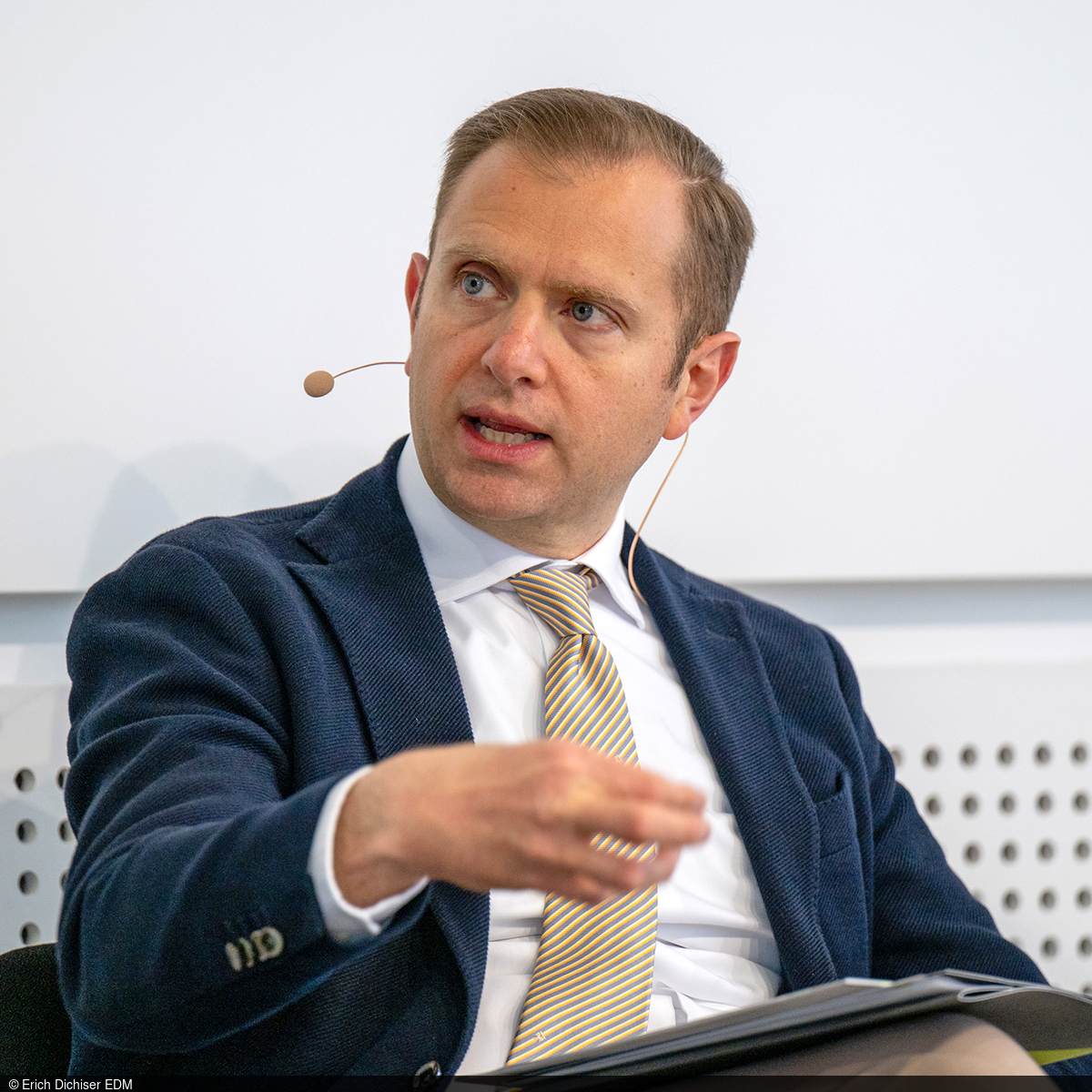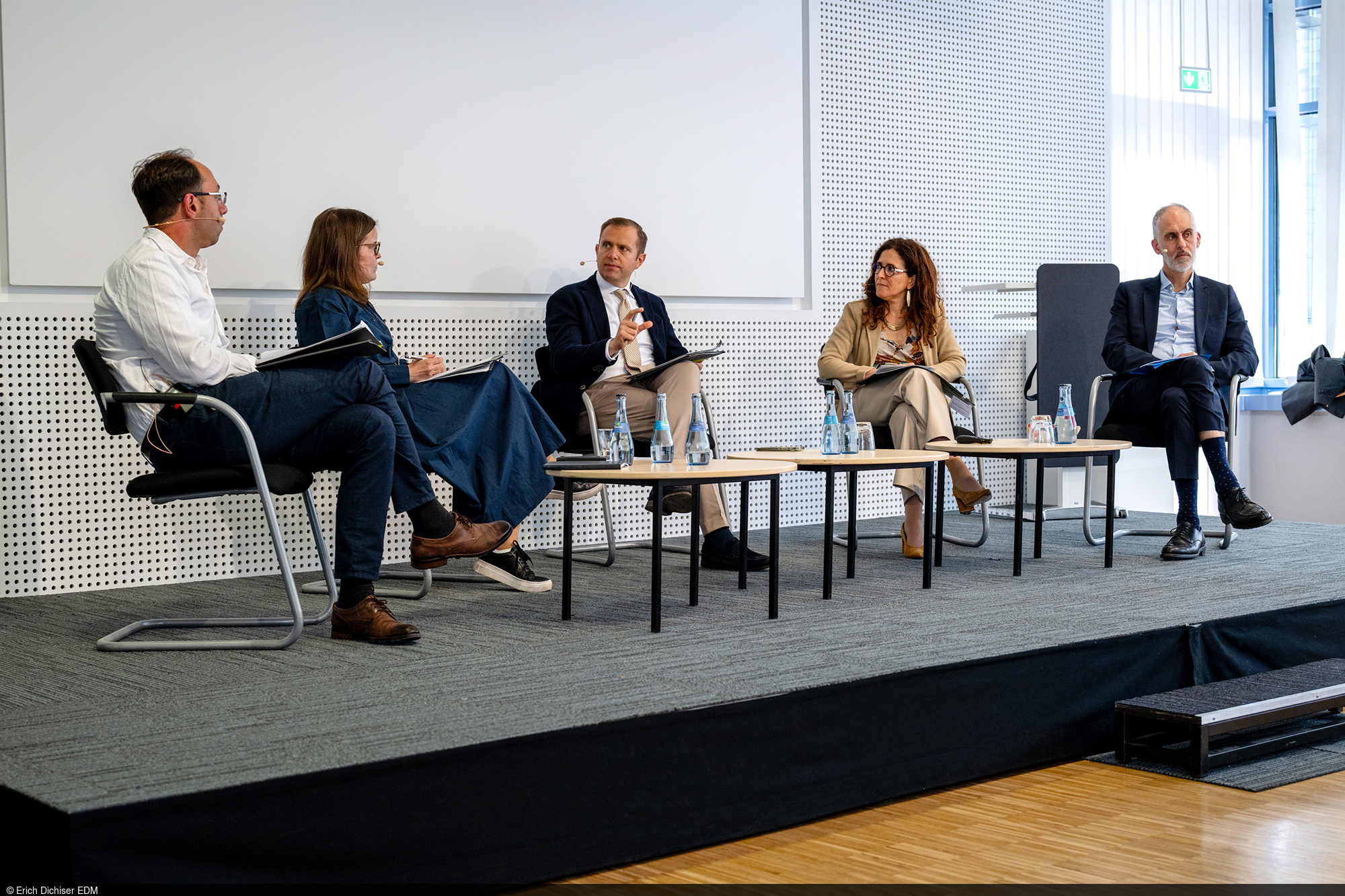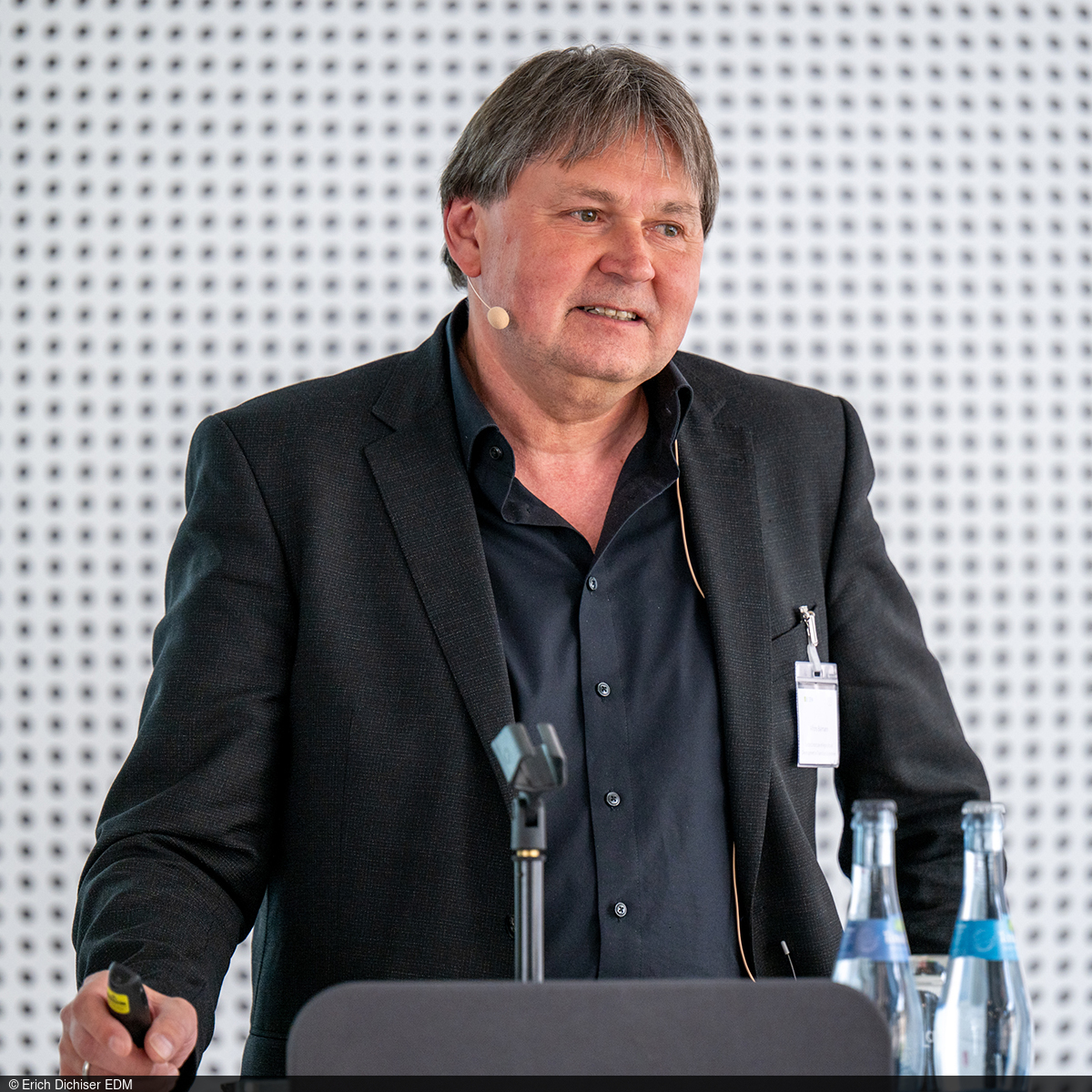European Finances in Focus: Need for Reform and Prospects
ConferencesZEW Public Finance Conference 2025 on Future of EU Budget
On 22 and 23 May 2025, ZEW organised the annual ZEW Public Finance Conference, sponsored by the Arbeitskreis für Europäische Integration e.V. Renowned academics and policymakers from Germany and abroad came together in Mannheim to discuss current issues of public finance and political economy. The future of the EU budget took centre stage this year.
The conference kicked off with a keynote speech by Riccardo Crescenzi (London School of Economics), who outlined major challenges and prospects for the European Union's cohesion policy in his presentation. Using empirical research data to illustrate the conditions under which EU cohesion policy is successful, he emphasised that the institutional context plays a key role in the success of cohesion policy.
Another highlight of the first day of the conference was the policy roundtable with renowned experts debating on the future of EU cohesion policy. Peter Berkowitz (European Commission), Mercedes Caballero (Spanish Ministry of Finance), Päivi Leino-Sandberg (University of Helsinki) and Riccardo Crescenzi discussed reform proposals for the next funding period and the role of cohesion policy within the European Union. The debate was moderated by ZEW economist Zareh Asatryan.
Agricultural subsidies and reform options
On the second day of the conference, Alfons Balmann (IAMO Halle) gave the second keynote speech on the Future of agricultural subsidies in Europe. In his presentation, he explained how existing subsidy structures distort economic incentives and which reform options exist to achieve a more efficient agricultural policy. Balmann advocated reducing agricultural subsidies and emphasised the opportunities offered by the integration of Ukraine for reforms in the EU’s agricultural policy.
In addition to the keynotes and panels, the conference offered a diverse scientific programme with over 60 presentations by international researchers. The topics ranged from tax and subsidy policy to regional disparities and the political economy of reform processes. All contributions were characterised by high methodological quality and relevance for current economic policy debates.




